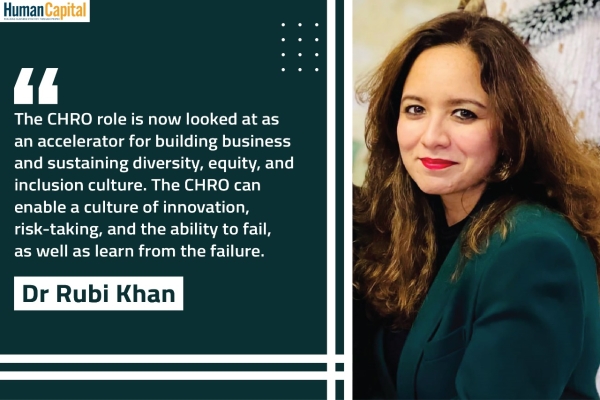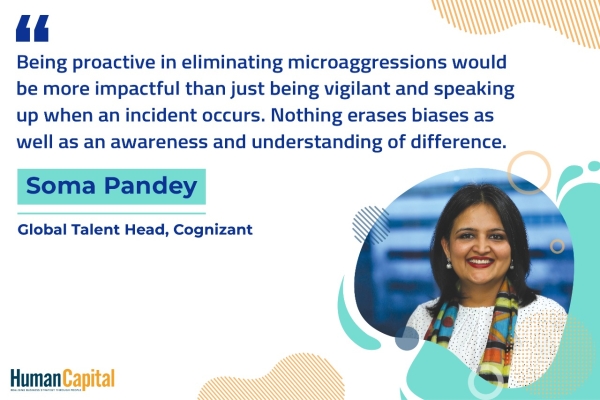V G Siddhartha (1959-2019), the late coffee baron, whipped himself for failing to create "the right profitable business model despite my best efforts." Following the death of Siddhartha, the founder of Café Coffee Day (CCD), the Group publicly stated, "Our total assets are valued at over Rs. 10,500 Crores in addition to the CCD brand, which runs over 1700 cafes, 5400 vending machines, and over 500 express format stores, and is valued at about Rs 7000 crore. Most of our outlets, after restructuring and segmenting into regular cafés, Lounge, The Square, and express counters, are making profits. To say that Siddhartha could not build a profitable brand is not fair." Reports say that over 500,000 customers walk into CCD every day, and it still remains as a rendezvous for friends and executives, for casual and crucial conversations. The sudden demise of V G Siddhartha has therefore opened a conundrum of issues.
CCD became an iconic brand, won several accolades, and was ranked the '2nd Most Exciting Brand' under the category of 'Food Services' in India by Brand Equity (Economic Times) in 2012 and 2014. It was also awarded 'The NCPEDP - Shell Helen Keller Award 2013' by the National Centre for Promotion of Employment for Disabled People, for being the organisational role model in generating employment opportunities for persons with disabilities. V G Siddhartha was awarded the 'ET Retail Hall of Fame' for his contribution towards the growth of the retail sector. While several accomplishments were in place, the question that baffles us is, "What went wrong? Why did V G Siddhartha have to take this final step?" This points us to reflect on what matters the most for leaders. Undoubtedly, resilience and a high adversity quotient matter in a big way. This author has taken a conscious view of not getting into the analysis of various reports, except to underscore the importance of resilience.
Resilience in a VUCA world
In the 1990s, the military described the external environment as VUCA: -
Volatile: The nature, speed, volume, magnitude, and dynamics of change
Uncertain: The lack of predictability of issues and events
Complex: The confounding issues and chaos that surround any organisation
Ambiguous: The haziness of reality and the multiple meaning of conditions
To provide a psychological perspective to V G Siddhartha's death, he failed to cope with the volatility of his inner psychological world, the uncertainty of his future, the complexity of a plethora of business concerns, and the ambiguous nature of issues and events. To handle such a kind of internal volatile, uncertain, complex, and ambiguous world, the prescription is resilience and enhancing adversity quotient.
For every human being on the face of the earth, adversity is a fact of life, and V G Siddhartha was no exception - he was deeply devastated by his adversity. Resilience allows individuals to come back at least as strong as before when knocked down by life. Resilient leaders find their way to rise from the ashes. Resilience as a concept has its roots in psychology and is defined as one's ability to absorb and recover from adversity.
The elements of Resilience
According to Psychologists, positive attitude, optimism, the ability to regulate emotions, and the ability to see failure as a part of life are certain dimensions of resilience. Individuals are not born with a magic wand of resilience, and there is enough empirical evidence to demonstrate that resilience can be enhanced.
Two British consultants confirm through their survey research the importance of resilience to business success. Cardinal elements of resilience are:-
1. The ability to recover from setbacks
2. Adapting well to change
3. Persevering in the face of adversity
"Where you get resilience from" is a matter of concern, and the same has been demonstrated in the diagram. Hence, it is evident that resilience comes from within, and as a part of training, learning and development, and executive mentoring and coaching, profound inner work should be carried out by psychologists.
Added impetus in training and development
Not only does resilience have a connotation on individuals, it reflects on organisations as well. Organisational resilience is the ability to recover after destruction, rather than the resistance to an unexpected event. An organisation with high resilience can adjust well in time, and shape a new capacity confronted with a variety of dramatic changes. V G Siddhartha's death is confounded with a surfeit of painful and inconclusive aspects. However, this is not the moment for CCD's workforce to lose hope, and an organisation's image is always bigger than that of an individual leader. Organisations invest massively in terms of focus as well as budgets on leadership development, managerial skills development, strategy and execution, and so on. Now, sporadic occurrences like the one described present a compelling need for an exclusive budget in the training and development space in organisations.
Keeping aside the realities and stories floating around tax, taxman, and other related issues, there are several lessons to learn from the late CCD founder's business and personal failure. A psychological analysis makes us believe that there is more than what meets the eye. The fact that it was mentioned in Siddhartha's letter that there was no intention to cheat or mislead shows that he was aware he was sailing in a direction that was dangerous and improper. His reportedly final words, "someday you will understand, forgive and pardon me" pains the humankind. When times are tough, individuals must tighten their belts. This applies to organisations too.
Therefore, V G Siddhartha's leadership saga provides us with the pivotal lesson that resilience matter for leaders. Hence, there is a case to learn and master the art and science of becoming a resilient leader. All the leaders in key positions in organisations must keep the following pointers in their mind:
1. Positive mental health and well-being is important for leaders
2. When the external and internal environment is VUCA, leaders are expected to demonstrate resilience
3. Learning and development must be proactive in enhancing the quotient of adversity and the level of resilience in leaders and employees in organisations
4. Executive mentors and coaches must watch out for the leader's resilience
5. Sincere attempts must be made to enhance the spiritual quotient of leaders. The leader's resilience must be made as a way of living so that employees can learn and incorporate into their lifestyle
6. Hiring or seeking help from a trained psychologist will certainly help organisations
7. Investing in the mental health of leaders and employees will take the organisation a long way
8. As Courtney White has aptly written in Grass, Soil, Hope (2014), “Life is about more than survival and bouncing back.”
Is your organisation post-COVID-ready?
Trending
-
SBI General Insurance Launches Digital Health Campaign
-
CredR Rolls Out 'Life Happens' Leave For Its Employees
-
Meesho Announces 30-Week Gender-Neutral Parental Leave Policy
-
Microsoft Unveils Tech Resilience Curriculum To Foster An Inclusive Future
-
60% Indian Professionals Looking For Job Change Due To COVID: Survey
-
SpringPeople And Siemens Collaborate For Digital Transformation Push
-
86% Professionals Believe Hybrid Work Is Essential For Work Life Balance: Report
-
Almost 1 In Every 3 People's Personal Life Affected Due To Work Stress
-
Meesho Rolls Out Reset And Recharge Policy For Employees
-
80% Of Talent Leaders & Academics Say Pandemic Changed Skill Needs For Youth: Report
-
Hero Electric Rolls Out 'Hero Care' Program For Employees
-
Human Capital In Collaboration With ASSOCHAM Hosts Virtual Conference
-
IKEA India, Tata STRIVE Collaborate To Create Employability And Entrepreneurship Opportunities
-
SAP India, Microsoft Launch Tech Skilling Program for Young Women
-
DXC Technology, NASSCOM Collaborate For Employability Skills Program
-
Lenskart To Hire Over 2000 Employees Across India By 2022
-
Mindtree Launches Learn-and-Earn Program
-
Tata AIA Extends 'Raksha Ka Teeka' To Its Employees
-
Swadesh Behera Is The New CPO Of Titan
-
NetConnect Global Plans To Recruit 5000 Tech Professionals In India
-
Hubhopper Plans To Hire 60% Of Indian Podcasters By 2022
-
Corporate India Needs More Women In Leadership Roles: Report
-
Aon to Invest $30 Million and Create 10,000 Apprenticeships by 2030
-
Tech Mahindra Launches ‘Gift a Career’ Initiative for Upskilling of Youth
-
40% Women Prefer Flexible Working Options in Post-COVID World: Survey
-
3 out of 4 companies believe they can effectively hire employees virtually: Report
-
Vodafone , CGI and NASSCOM Foundation launch digital skills platform
-
Odisha: Bank, postal employees to deliver cash for elderly, differently-abled persons
-
Skill India launches AI-based digital platform for "Skilled Workforce"
-
Hiring activity declines 6.73% in first quarter: Survey
-
70% startups impacted by COVID-19 pandemic
-
Bajaj Allianz Life ropes in Santanu Banerjee as CHRO
-
Over 70 Percent MSMEs look at cutting jobs to sustain businesses
-
93 Per Cent employees stressed about returning to office post-lockdown
-
Johnson & Johnson India announces family benefits for same gender partners
-
Indian firms turning friendly towards working mothers
-
Welspun India names Rajendra Mehta as new CHRO
-
Wipro partners with NASSCOM to launch Future Skills platform



Human Capital is niche media organisation for HR and Corporate. Our aim is to create an outstanding user experience for all our clients, readers, employers and employees through inspiring, industry-leading content pieces in the form of case studies, analysis, expert reports, authored articles and blogs. We cover topics such as talent acquisition, learning and development, diversity and inclusion, leadership, compensation, recruitment and many more.
Subscribe Now












































Comment